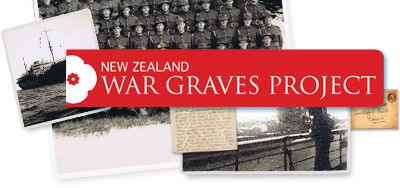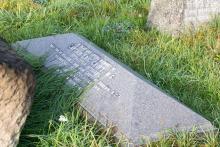"CAPTAIN ERIC CROFT, M.C.
A TRAGIC END IN LONDON. (From Our Own Correspondent.) LONDON, January 22. On January 19, Captain Eric Croft M.C., R.F.A. (Dunedin), was to have been married at Nottingham to Miss Iris Gwendolyn Jardine, daughter of Mr E. Jardine, M.P.
On Thursday evening, January 17, Captain Croft dined at the Piccadilly Grill Room with two friends — Mr Cecil Rowland (a former medical student with deceased) and Dr Carroll. At the inquest the former said that they left the grill room at about 10.30. "As we came out I walked upstairs first, Carroll came next, and Captain Croft after him. Dr Carroll was talking. Just as we turned round the last flight of stairs at the top I heard a tremendous crash, and looked round, but did not see anything. Carroll said, 'Croft has gone over the side.' I found him downstairs unconscious."
The Coroner: How far had he dropped?— Between 20ft and 25ft. His foot must have hit a screen on the inside as he went down. Was there any skylarking going on at the time? — None at all.
Was the dinner to celebrate the fact that he was going to be married? — No. It was just a friendly dinner. Did he speak about his marriage? — Not very much.
What did you have to drink? — We had a bottle of still hock between three of us, two liqueurs, and a whisky. Was he quite sober when he came away? — Yes, quite. We left about half-past 10. Mr Rowland was going to Nottingham next day for the wedding. Dr C. H. Carroll, house surgeon at London Hospital, who was one of the party, gave similar evidence.
The Coroner: There was no ragging or fooling? — None whatever. Deceased waa perfectly sober. Edward Brunt, detective at the Piccadilly Hotel, who was in the cloak room when deceased and his friends left, declared that Captain Croft was sober.
The Coroner: Do you agree that there was no skylarking or ragging going on? — No; there was none.
Dr Annie Keilin, house surgeon at Charing Cross Hospital, said deceased died half an hour after admission. She had made the post-mortem, which showed that he had a fractured skull and several ribs fractured.
Police-sergeant Cox said he had examined the balusters, and found them in perfect order. "They were 2ft 10in - high—perhaps a few inches lower than ordinary balusters, but nothing noticeable.
Mr Allen Charles Goodall, of Solihull, Warwickshire, gave evidence. He said that Captain Croft was his nephew, and came from Dunedin as a medical student, later joining the army. At the time of his death he had been in France a couple of years, and had earned the Military Cross. He had been wounded and gassed, and came out of Somerville Hospital three weeks ago. He was very weak and in pain after the effects of gassing. While staying with witness he had attacks of faintness due to the gassing, and had pulled up several times during a stroll owing to feeling faint. He had been engaged about a month, and the wedding was to have taken place in Nottingham. The jury returned a verdict of accidental death, and expressed their regret at the loss of such a distinguished officer. The coroner concurred, and tendered his sympathy to Mr Jardine and his daughter.
In May, 1914, Captain Croft arrived from Dunedin to enter upon a five years' course of medical study at London Hospital. Very soon afterwards war broke out, and he volunteered for Red Cross work. He was sent to Brussels immediately, and was there when the Germans took possession, and he was for two months a prisoner. Later he managed to get back to England by a circuitous route. Next, with the R.A.M.C., he went to a clearing hospital at Ypres, and after that he was at the Indian Hospital at Hardelot, under the I.M.S. In March, 1915, he took his second professional examination for M.R.C.S., L.R.C.P., and in September of the same year he was commissioned to the R.F.A. In the middle of 1916 he gained the Military Cross in the following circumstances: "When proceeding under orders to gain information as to the position of our front line he encountered a hostile party, consisting of an officer and 35 men, who showed fight; but with an infantry officer and two bombers only he forced the whole party to surrender."
Early in 1917 Lieutenant Croft was with the Mediterranean Expeditionary Force, and he was promoted captain about that time. Last November he was wounded and gassed, and had been in hospital in England until a few weeks ago. The news of Captain Croft's death quickly gained currency, but most reports were that he had been killed in France as the result of an accident. Only one account mentioned London as the place of tho tragedy, and this, of course, proved correct.
Miss Jardine is the youngest daughter of the M.P. for East Somerset, and is among tho most popular of the younger members of Nottingham society. Early in the war Miss Jardine volunteered as a nurse, and on returning to Nottingham after a long spell of duty she entered devotedly into social welfare work locally. Her acquaintance with Captain Croft extended over two years, and advantage was taken of his last leave to celebrate the wedding before rejoining his regiment in France. Captain Croft was the only son of Mr and Mrs Croft, of Dunedin, and his age was 36 years." [Otago Daily Times, Issue 17264, 16 March 1918, Page 8]






![[Source: Archives New Zealand, Reference: R24183991] Captain Eric Croft MC](https://www.nzwargraves.org.nz/sites/default/files/styles/thumbnail/public/Croft%20-%20Eric%20WW1.png?itok=9g4sKBw_)